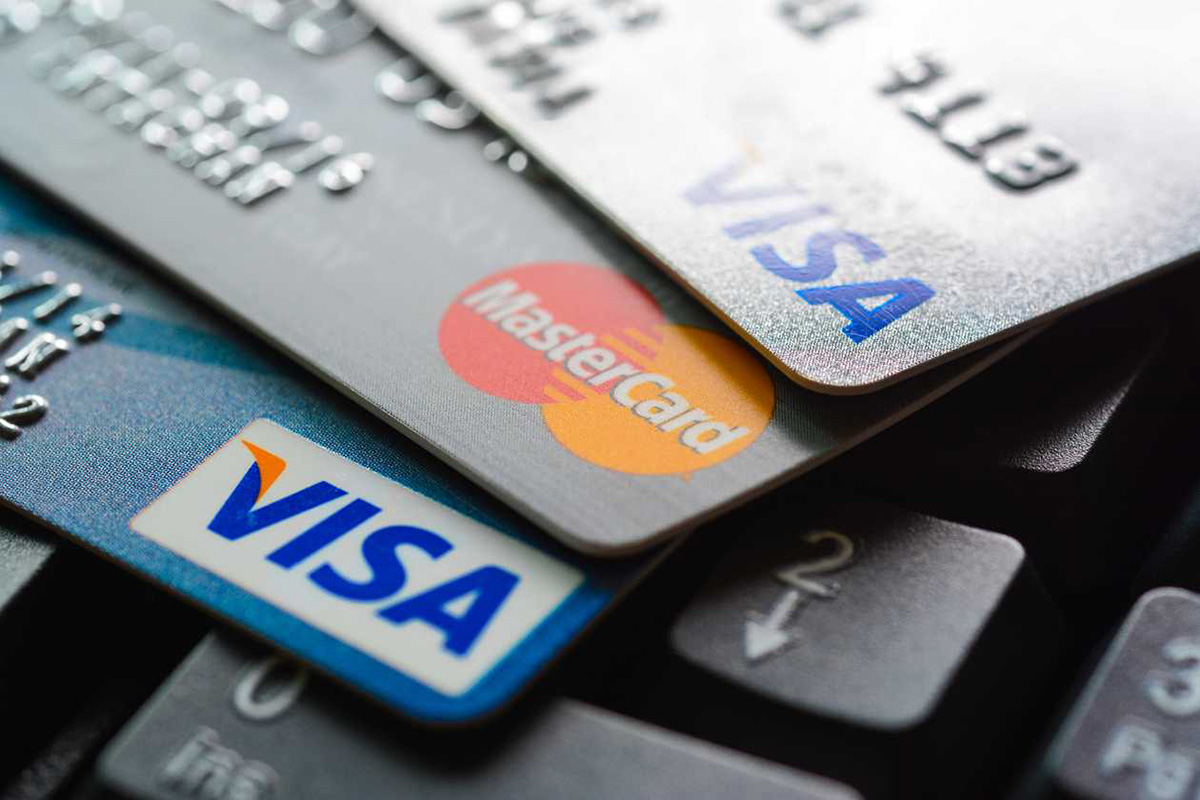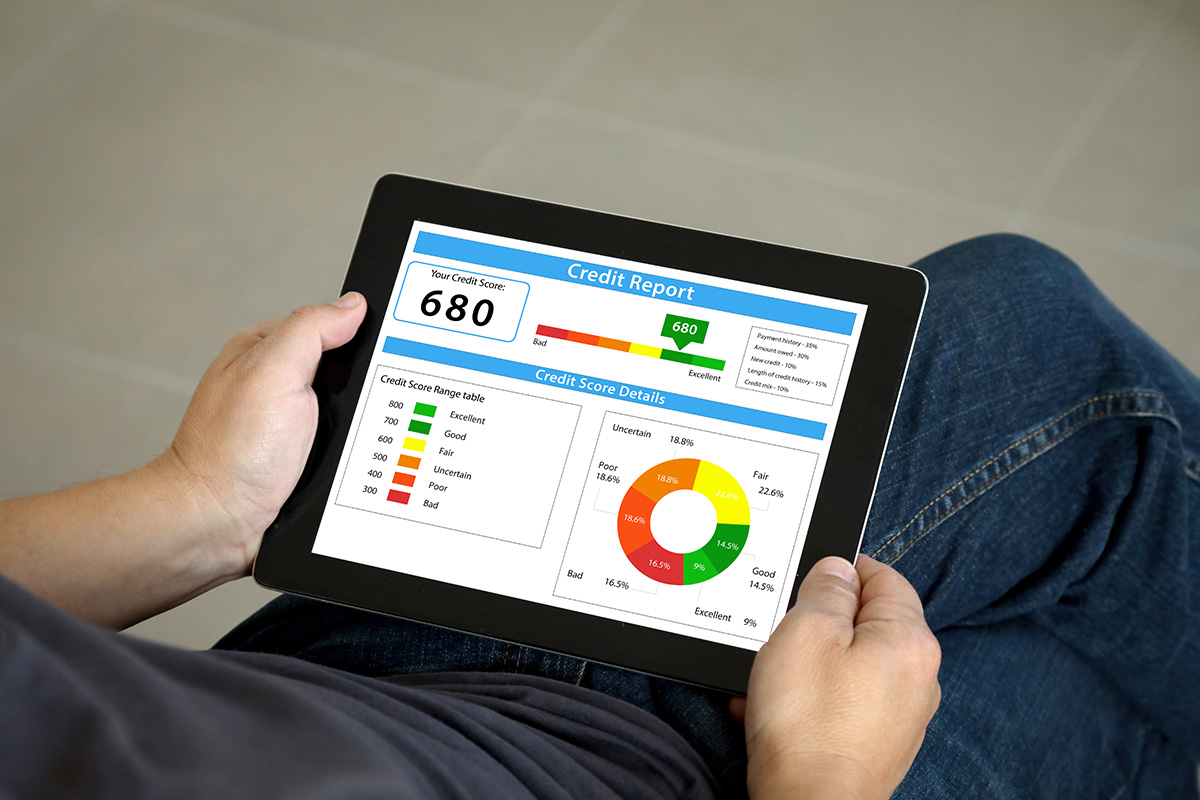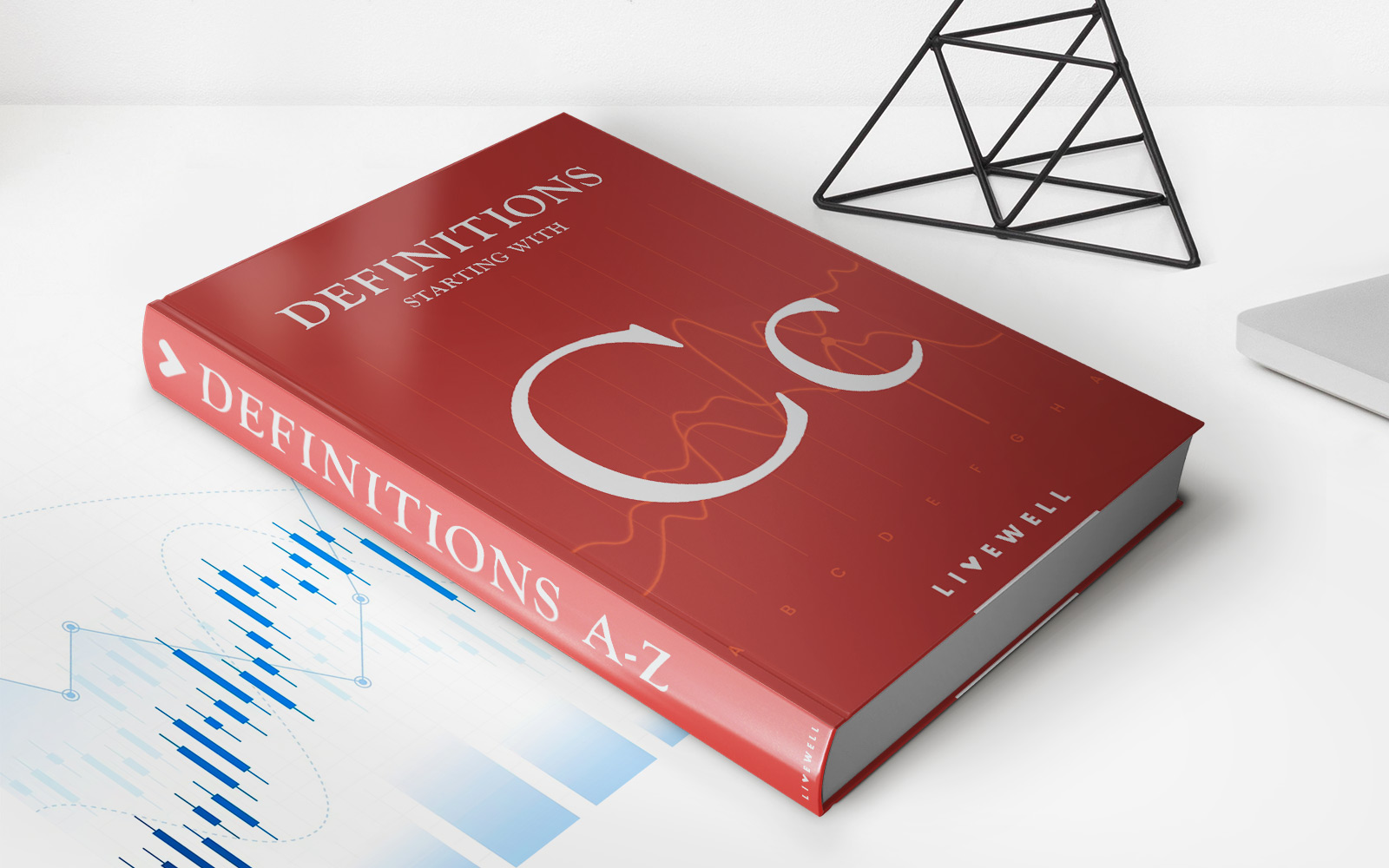

Finance
Which Credit Card Use Transunion
Modified: March 3, 2024
Discover which credit card to use for Transunion credit scores with our comprehensive finance guide. Make informed decisions and maximize your financial potential.
(Many of the links in this article redirect to a specific reviewed product. Your purchase of these products through affiliate links helps to generate commission for LiveWell, at no extra cost. Learn more)
Table of Contents
- Introduction
- Transunion and its Importance in Credit Card Applications
- Factors to Consider when Choosing a Credit Card that Uses Transunion
- Top Credit Cards that Utilize Transunion for Credit Checks
- Benefits of Using Credit Cards that Report to Transunion
- How to Check if a Credit Card Provider Uses Transunion
- Tips for Effectively Managing Credit Cards that Report to Transunion
- Conclusion
Introduction
When it comes to applying for a credit card, it’s important to know which credit bureaus the credit card company uses for credit checks. One of the major credit bureaus that is commonly used by credit card providers is Transunion. Transunion plays a vital role in the credit industry by collecting and maintaining credit information on millions of consumers. Understanding the importance of Transunion in credit card applications can help you make informed decisions and choose the right credit card that aligns with your financial goals.
Why is Transunion important? Well, credit card companies often rely on credit bureaus like Transunion to assess an individual’s creditworthiness. This helps them determine if the applicant qualifies for a credit card and the terms and conditions that will be associated with it. Credit scores, credit history, and other relevant credit information are all factors that Transunion provides to credit card companies, assisting them in evaluating an individual’s creditworthiness.
Knowing which credit card providers use Transunion can be advantageous when you want to apply for a new credit card. By understanding this, you can streamline your application process and avoid unnecessary credit inquiries from companies that use other credit bureaus. Additionally, using a credit card that reports to Transunion can be beneficial for building or improving your credit profile, as the information is shared with other lenders and can positively impact your credit score.
In this article, we will discuss the factors to consider when choosing a credit card that uses Transunion, highlight some of the top credit cards that rely on Transunion for credit checks, outline the benefits of using credit cards that report to Transunion, provide tips on how to check if a credit card provider uses Transunion, and offer advice on effectively managing credit cards that report to Transunion.
Transunion and its Importance in Credit Card Applications
Transunion is one of the three major credit bureaus in the United States, along with Equifax and Experian. It plays a crucial role in the credit card application process as credit card issuers rely on Transunion to assess the creditworthiness of applicants.
When you apply for a credit card, the credit card issuer will request your credit information from one or more credit bureaus, including Transunion. The credit card company uses this information to evaluate your creditworthiness and determine whether to approve your application, as well as the terms and conditions that will be associated with the card.
Transunion collects and maintains a comprehensive credit file on millions of consumers, which includes data on your credit accounts, payment history, outstanding debts, and various other credit-related information. This data is used to calculate your credit score, which acts as a numerical representation of your creditworthiness.
When a credit card issuer pulls your credit report from Transunion, they gain insights into your financial behavior and see how you’ve managed credit in the past. This information helps them assess the risk associated with lending you credit. If you have a good credit history and a high credit score, it indicates to the credit card issuer that you are a responsible borrower and are likely to repay your debts on time. This increases your chances of getting approved for the credit card and may even qualify you for better terms, such as a lower interest rate or higher credit limit.
On the other hand, if you have negative items on your credit report, such as late payments, collection accounts, or a high credit utilization ratio, it can negatively impact your creditworthiness. This may result in either a rejection of your credit card application or approval with less favorable terms, such as a higher interest rate or lower credit limit.
It’s important to note that credit card issuers may not solely rely on Transunion for credit evaluations. They may also use data from other credit bureaus to get a more comprehensive view of your credit history. Therefore, having a good credit profile across all three major credit bureaus is crucial when applying for a credit card.
Understanding the role of Transunion in credit card applications allows you to be better prepared when seeking a new credit card. It’s wise to regularly monitor your credit report from Transunion, as well as the other credit bureaus, to check for any errors or discrepancies that could potentially affect your creditworthiness.
Factors to Consider when Choosing a Credit Card that Uses Transunion
When selecting a credit card that utilizes Transunion for credit checks, there are several important factors to consider. These factors can help you find a credit card that aligns with your financial needs and goals. Here are some key considerations:
- Interest Rates: One of the most crucial factors to consider is the interest rate associated with the credit card. Look for cards with competitive interest rates to ensure that you can manage your balance effectively and minimize interest charges.
- Rewards and Benefits: Many credit cards offer rewards programs, cashback, or other benefits. Determine if the card provides rewards that match your spending habits and preferences. For example, if you frequently travel, a credit card with travel rewards may be a good fit.
- Annual Fees: Some credit cards charge an annual fee for membership. Consider whether the benefits and rewards offered by the card outweigh the cost of the annual fee. If you don’t plan on using the card frequently or won’t benefit from the perks, you may want to opt for a no-fee card.
- Credit Limit: Credit card limits can vary greatly. Assess your spending patterns and credit needs to determine the appropriate credit limit that will accommodate your expenses without encouraging excessive debt.
- Introductory Offers: Many credit cards provide introductory offers, such as 0% APR for balance transfers or purchases. If you have existing credit card debt or plan to make significant purchases in the near future, these offers can help you save money on interest charges.
- Customer Service: The quality of customer service can greatly impact your credit card experience. Research the credit card issuer’s reputation for customer support and responsiveness to ensure you’ll be well-supported if you encounter any issues or have questions.
- Credit Building Opportunities: If you have a limited credit history or are looking to rebuild your credit, consider credit cards that report to Transunion. Using a credit card that reports to the credit bureaus can help you establish or improve your credit profile over time.
- Additional Fees: Pay attention to any additional fees associated with the credit card, such as foreign transaction fees, balance transfer fees, or late payment fees. Understanding these fees can help you avoid unexpected charges.
- Security Features: Look for credit cards that offer robust security features, such as fraud protection, chip-enabled technology, and zero-liability policies. These features can provide peace of mind and protect you from unauthorized transactions.
- Compatibility with your Financial Goals: Assess how the credit card aligns with your financial goals. For example, if you’re aiming to pay off debt, a low-interest or balance transfer credit card may be more suitable. If you’re focused on building credit, a secured credit card could be beneficial.
By carefully considering these factors, you can choose a credit card that not only uses Transunion for credit checks but also meets your financial needs and helps you achieve your long-term goals.
Top Credit Cards that Utilize Transunion for Credit Checks
When it comes to credit cards that utilize Transunion for credit checks, there are several noteworthy options available. These credit cards offer a range of benefits and features that cater to different financial needs and lifestyles. Here are some of the top credit cards known for relying on Transunion for credit evaluations:
- Chase Sapphire Preferred® Card: This popular travel rewards credit card is known for its generous sign-up bonus and flexible redemption options. It utilizes Transunion, among other credit bureaus, to assess applicants’ creditworthiness.
- Citibank® Double Cash Card: Offering cashback rewards, low fees, and a competitive interest rate, this credit card is a favorite among those who prefer simplicity and value. It reports to multiple credit bureaus, including Transunion.
- Discover it® Cash Back: With its rotating cashback categories and generous first-year cashback match, this credit card appeals to individuals who want to earn rewards on their everyday spending. It reports to Transunion, Equifax, and Experian.
- Capital One® Venture Rewards Credit Card: Aimed at travel enthusiasts, this card offers miles for every purchase and flexible redemption options. Transunion is one of the credit bureaus consulted for making credit decisions.
- Bank of America® Cash Rewards Credit Card: This versatile credit card offers cashback rewards, no annual fee, and the option to customize your cashback categories. Transunion provides credit information for applicants.
- American Express® Platinum Card: Designed for luxury travelers, this premium credit card offers a wide array of travel benefits, airport lounge access, and generous rewards. It uses Transunion, among other bureaus, to evaluate applications.
- Wells Fargo Propel American Express® Card: With its attractive rewards program and no annual fee, this credit card is popular among individuals seeking value for their spending. Transunion is one of the bureaus consulted during the application process.
- U.S. Bank Altitude® Go Visa Signature® Card: Known for its dining and streaming rewards, this credit card offers a great combination of benefits. Transunion is one of the credit bureaus used to assess creditworthiness.
- Barclaycard Arrival Plus® World Elite Mastercard®: This travel credit card offers flexible redemption options and a generous sign-up bonus. It pulls credit information from Transunion and other bureaus for credit evaluations.
- Capital One® Quicksilver® Cash Rewards Credit Card: With its straightforward cashback program and no annual fee, this credit card is a popular choice for individuals seeking simplicity. Transunion is consulted during the credit check process.
It’s important to note that credit card offerings can change over time, and eligibility requirements may vary. Before applying for a credit card, ensure that you review the specific credit card’s terms and conditions, fees, rewards, and other features to determine if it aligns with your financial needs and goals.
Benefits of Using Credit Cards that Report to Transunion
Using credit cards that report to Transunion can offer several advantages for individuals looking to build or improve their credit profiles. Here are some key benefits of using credit cards that report to Transunion:
- Establishing Credit History: For individuals with limited or no credit history, using a credit card that reports to Transunion can allow them to start building their credit profile. By making timely payments and responsibly managing credit, they can demonstrate their creditworthiness, which can be beneficial for future credit applications.
- Improving Credit Score: Consistently using a credit card that reports to Transunion and making payments on time can improve your credit score. Payment history is a significant factor in credit score calculations, and positive payment behavior can positively impact your creditworthiness over time.
- Enhancing Credit Mix: Lenders like to see a diversified credit mix when assessing creditworthiness. By using credit cards that report to Transunion, you can add a revolving credit account to your credit profile, which can complement other types of credit, such as loans or mortgages, and improve your credit mix.
- Increasing Future Financing Options: A strong credit history and high credit score can open up more financing opportunities in the future. Whether you’re looking to apply for a mortgage, car loan, or another credit card, having a good credit profile through the use of credit cards that report to Transunion can increase your chances of approval and better terms.
- Access to Better Credit Card Offers: As your credit profile improves, you may become eligible for credit cards with better features, such as lower interest rates, higher credit limits, and more attractive rewards programs. Credit card issuers typically target individuals with good credit profiles, which are established through responsible credit card use and timely payments.
- Monitoring Credit Health: By regularly reviewing your credit report from Transunion, you can stay informed about your credit health. Monitoring your credit allows you to spot any errors, unauthorized accounts, or fraudulent activity that could negatively impact your credit. If you identify any inaccuracies, you can take steps to rectify them and protect your creditworthiness.
- Potential for Credit Limit Increases: Building a positive credit history with credit cards that report to Transunion may increase your chances of receiving credit limit increases. Higher credit limits can offer more flexibility in managing your expenses and can contribute positively to your credit utilization ratio, a key factor in credit scoring models.
- Building Trust with Lenders: Using credit cards that report to Transunion and maintaining a responsible credit behavior can help you establish trust with lenders. This can be beneficial when seeking larger loans or negotiating better terms, as lenders will see your proven track record of handling credit responsibly.
Overall, using credit cards that report to Transunion not only helps you build credit but also provides opportunities for better financial prospects and increased access to credit options in the future. It’s important to use these credit cards responsibly by making on-time payments, keeping utilization low, and managing your credit wisely to reap the full benefits.
How to Check if a Credit Card Provider Uses Transunion
Before applying for a credit card, it’s beneficial to know which credit bureaus the card issuer relies on for credit checks. Here are some simple ways to determine if a credit card provider uses Transunion:
- Check the provider’s website: Visit the website of the credit card provider you’re interested in and look for information about the credit bureaus they use. Frequently, credit card issuers will mention the credit bureaus they rely on to assess applicants’ creditworthiness, including Transunion.
- Read the terms and conditions: Go through the terms and conditions of the credit card you’re considering. Credit card agreements often provide details about the credit bureaus that the issuer utilizes. Look for sections that mention credit reporting agencies or credit checks to find out if Transunion is included.
- Contact the credit card provider: If you can’t find information about the credit bureaus used by the credit card provider on their website or in the terms and conditions, reach out to the card issuer’s customer service. Ask them directly which credit bureaus they rely on when evaluating credit card applications, including whether they use Transunion.
- Utilize online forums or communities: Browse online forums or communities where individuals discuss credit cards and credit bureaus. You may come across posts or discussions where people share their experiences regarding which credit bureaus were used during their credit card applications. This can provide insight into whether a specific credit card provider uses Transunion.
- Consult credit card comparison websites: Visit reputable credit card comparison websites that provide detailed information on different credit cards. These websites often include data on the credit bureaus used by each credit card provider. Look for the specific credit card you’re interested in and check if Transunion is listed as one of the credit bureaus utilized.
It’s important to note that credit card providers may use multiple credit bureaus, including Transunion, Equifax, and Experian. Therefore, even if a credit card provider relies on Transunion, they may also consider information from other credit bureaus during the application process.
By utilizing these methods, you can easily determine if a credit card provider uses Transunion or other credit bureaus. This knowledge can help you make informed decisions when choosing the right credit card that aligns with your credit goals and financial needs.
Tips for Effectively Managing Credit Cards that Report to Transunion
Managing credit cards that report to Transunion, or any credit bureau, requires responsible financial habits to maintain a healthy credit profile. Here are some valuable tips to effectively manage credit cards that report to Transunion:
- Create a budget: Establish a monthly budget to track your income and expenses. This will help you ensure that you can afford your credit card payments and avoid unnecessary debt.
- Pay on time, every time: Make your credit card payments on or before the due date. Late payments can negatively impact your credit score and incur additional fees or interest charges.
- Keep your credit utilization low: Maintain a low credit utilization ratio by using a small portion of your available credit. Aim to keep your credit card balances below 30% of the credit limit to demonstrate responsible credit management.
- Avoid maxing out your credit cards: Maxing out your credit cards can harm your credit score. It is advisable to use your credit cards sparingly and pay off the balance in full each month if possible.
- Monitor your credit regularly: Check your credit report from Transunion regularly to ensure the accuracy of the information and identify any suspicious activity or errors. This can help you address any issues promptly.
- Keep credit card accounts open: Keeping your credit card accounts open, especially the ones with a longer credit history, can positively impact your credit score. However, be mindful of any annual fees associated with your cards and determine if the benefits still outweigh the costs.
- Avoid unnecessary credit card applications: Each credit card application results in a hard inquiry on your credit report, which can temporarily lower your credit score. Only apply for new cards when necessary and consider the impact on your credit profile.
- Pay attention to promotional offers: Take advantage of promotional offers such as introductory 0% APR periods or bonus rewards. However, be aware of the terms and conditions, such as the expiration date and any fees associated with the offers.
- Review your statements: Regularly review your credit card statements for any discrepancies or unauthorized charges. If you identify any issues, report them to your credit card issuer immediately.
- Develop good financial habits: Cultivate responsible financial habits such as budgeting, saving, and avoiding unnecessary debt. These habits can contribute to your overall financial well-being and help maintain a positive credit profile.
Remember that effectively managing credit cards that report to Transunion requires consistent effort and discipline. By following these tips, you can build a strong credit history, improve your credit score, and enjoy the benefits of responsible credit card use.
Conclusion
Understanding the role of Transunion in credit card applications and choosing credit cards that utilize Transunion for credit checks can greatly impact your financial journey. By considering factors such as interest rates, rewards, fees, and credit building opportunities, you can find a credit card that aligns with your needs and goals.
Credit cards that report to Transunion offer numerous benefits, including the ability to establish or improve your credit history, potentially increase your credit score, and access better financing options in the future. By managing your credit responsibly, paying on time, keeping your credit utilization low, and monitoring your credit regularly, you can maintain a healthy credit profile.
When applying for a credit card, it’s important to verify if the credit card provider uses Transunion by checking their website, reading the terms and conditions, or contacting customer service. This knowledge allows you to make informed decisions and avoid unnecessary credit inquiries.
By following effective credit card management tips, such as creating a budget, paying on time, and monitoring your credit, you can maximize the benefits of credit cards that report to Transunion. Remember to cultivate good financial habits and make wise financial decisions to achieve long-term financial success.
In conclusion, understanding the significance of Transunion and utilizing credit cards that report to Transunion can help you build a solid credit history, improve your creditworthiness, and unlock financial opportunities. Choose your credit cards wisely, manage them responsibly, and enjoy the benefits of a strong credit profile.














